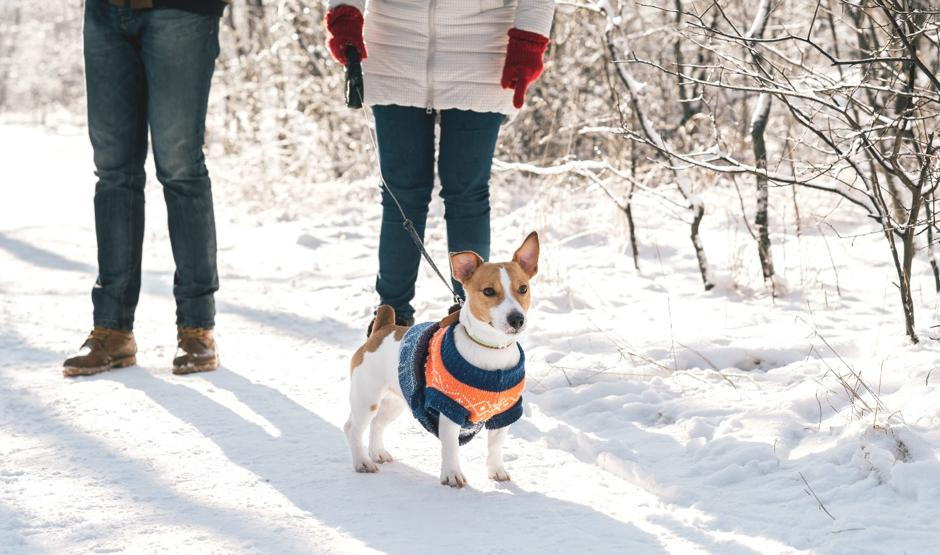
Dogs should still enjoy exercise outdoors in winter with their owners, with some considerations made for colder weather. Thin dogs, or dogs with very short hair coats, can benefit from sweaters or vets. Make sure there is no strap or buckle directly over the shoulder joint, though, as that can lead to joint damage over time.
If your dog is going to be very active over a prolonged period, bring water along as dehydration occurs with out the feelings of thirst. Keep your dog’s nails fairly short so they don’t get them caught on things on the frozen, uneven ground. Watch for early signs of hypothermia, such as strong shivering and pale gums, and know when to take action.
Just like you would need a warm-up period before hard exercise, so does your dog. This is more important when it comes to cold weather activities and for older dogs or those with prior injuries. If you are going on a walk, start the first five minutes at a slower pace than you are used to.
If you dog is going to be running at the dog park or open field, allow a warm-up period before letting him off lead. this can be 10 to 15 minutes of leash walking or trotting, making sure to include figure 8s or big circles, so that muscles and joints are worked from multiple angles.
Cassie, a Certified Veterinary Technician, notes several ways to manage cabin fever indoors during these cold months:
She and her own dog do many winter games indoors. These include puzzle balls, such as Kongs or kibble dispensers. If these specialty toys are out of your price range, you can find many YouTube DIY videos to make them out of plastic bottles.
When using any of these toys, your dog should be supervised.
Another option to occupy your dog’s mind is training him to do tricks. These tricks can vary in difficulty, from a simple paw shake to ringing a bell.
You can use mealtime as a fun event for your dog, to use his nose to his advantage, by hiding food throughout the house. Your local kennel club also offers different types of training classes for agility, obedience, and tricks, to name a few.
Previously published
